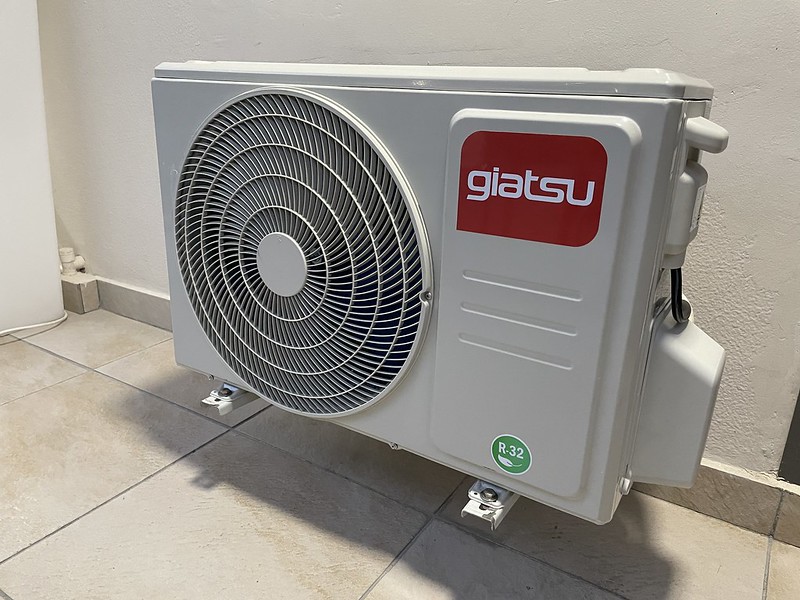Mini split systems are a popular choice for heating and cooling homes and buildings due to their energy efficiency, flexibility, and ease of installation. One of the key components of a mini split system is the compressor, which plays a crucial role in the system’s heat mode operation. In this comprehensive guide, we will delve into the details of how mini split systems use the compressor during heat mode, addressing common questions and providing technical insights to help you understand the inner workings of these systems.
The Role of the Compressor in Mini Split Heat Mode
The compressor is the heart of a mini split system’s heat pump technology. During the heat mode operation, the compressor is responsible for circulating the refrigerant throughout the system, enabling the absorption and release of heat. Here’s a breakdown of how the compressor functions in heat mode:
-
Refrigerant Compression: The compressor takes in low-pressure, low-temperature refrigerant from the indoor unit’s evaporator coil. It then compresses the refrigerant, increasing its temperature and pressure.
-
Heat Absorption: The high-pressure, high-temperature refrigerant is then directed to the outdoor unit’s condenser coil. As the refrigerant passes through the condenser coil, it releases the heat it absorbed from the indoor air, transferring that heat to the outdoor air.
-
Heat Dissipation: The now low-pressure, low-temperature refrigerant is then directed back to the indoor unit’s evaporator coil, where it absorbs heat from the indoor air, cooling the space. This cycle continues, with the compressor continuously circulating the refrigerant and facilitating the heat transfer process.
Compressor Efficiency in Heat Mode
Mini split systems are designed to operate efficiently in heat mode, and the compressor plays a crucial role in this. Here are some key factors that contribute to the compressor’s efficiency in heat mode:
-
Inverter Technology: Many modern mini split systems employ inverter-driven compressors, which can adjust their speed and power output to match the heating demand. This allows the compressor to operate at the optimal efficiency level, reducing energy consumption and maintaining a consistent indoor temperature.
-
Refrigerant Selection: The type of refrigerant used in the mini split system can also impact the compressor’s efficiency. Newer refrigerants, such as R-32, have higher energy efficiency and lower global warming potential compared to older refrigerants.
-
Compressor Design: Advancements in compressor design, such as the use of scroll or rotary compressors, have improved efficiency and reliability in mini split systems.
-
Proper Sizing: Ensuring that the mini split system is properly sized for the space it’s intended to heat is crucial for optimal compressor performance. An oversized or undersized system can lead to inefficient operation and increased wear on the compressor.
Troubleshooting Compressor Issues in Heat Mode
While mini split systems are generally reliable, there may be instances where the compressor encounters issues during heat mode operation. Here are some common problems and potential solutions:
-
Compressor Failure: If the compressor fails, the mini split system will not be able to generate heat. This could be due to a variety of reasons, such as electrical issues, mechanical wear, or refrigerant leaks. In such cases, the compressor may need to be repaired or replaced by a qualified HVAC technician.
-
Compressor Short-Cycling: If the compressor is turning on and off frequently, it may be an indication of a problem, such as a refrigerant leak, a faulty thermostat, or an issue with the system’s controls. This can lead to decreased efficiency and potential damage to the compressor.
-
Compressor Noise: Unusual noises coming from the compressor, such as grinding, rattling, or humming, may indicate a problem with the compressor or other system components. These issues should be addressed promptly by a professional to prevent further damage.
-
Compressor Overheating: If the compressor is running for extended periods or is not cooling properly, it may be overheating. This could be due to issues like low refrigerant levels, airflow obstructions, or a malfunctioning fan.
In all cases, it’s essential to have a qualified HVAC technician diagnose and address any compressor-related issues to ensure the continued efficient and safe operation of your mini split system.
Maintaining the Compressor for Optimal Heat Mode Performance
Regular maintenance and care of the mini split system’s compressor can help ensure its longevity and optimal performance in heat mode. Here are some key maintenance tasks to consider:
-
Refrigerant Charge Checks: Periodically checking the refrigerant charge and refilling it if necessary can help prevent issues like compressor overheating or short-cycling.
-
Coil Cleaning: Keeping the indoor and outdoor coils clean and free of debris can improve airflow and heat transfer, reducing the strain on the compressor.
-
Filter Maintenance: Regularly cleaning or replacing the air filters can also help maintain proper airflow and reduce the workload on the compressor.
-
Compressor Lubrication: Some compressors require periodic lubrication to ensure smooth operation and minimize wear and tear.
-
System Inspections: Scheduling regular system inspections by a qualified HVAC technician can help identify and address any potential issues with the compressor or other components before they become more serious problems.
By following these maintenance practices, you can help ensure that your mini split system’s compressor operates efficiently and reliably in heat mode, providing consistent and comfortable heating for your home or building.
Conclusion
In summary, mini split systems do use a compressor during heat mode operation, and the compressor plays a crucial role in the system’s heat pump technology. Understanding the compressor’s function, efficiency factors, and potential troubleshooting steps can help you maintain your mini split system’s performance and ensure it provides reliable and energy-efficient heating for your space.

